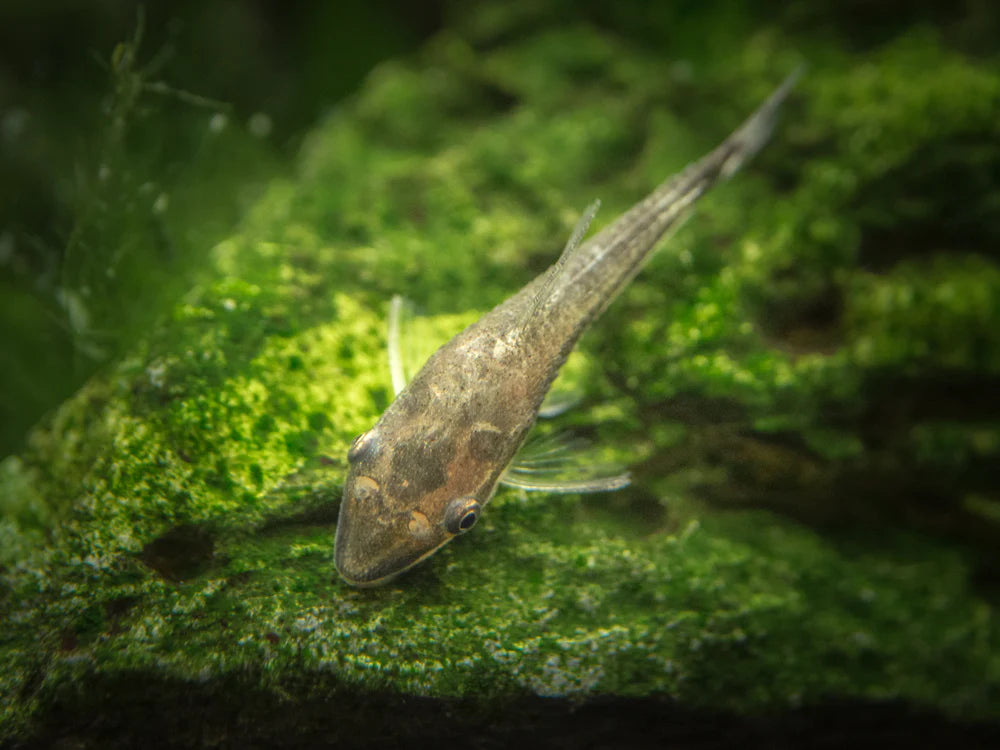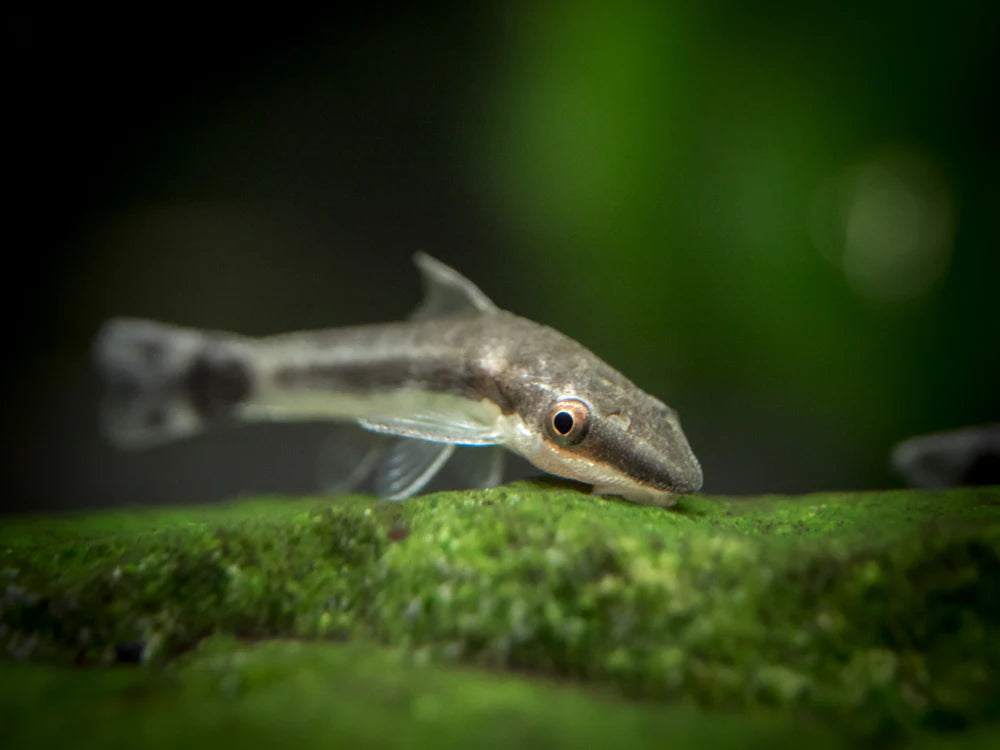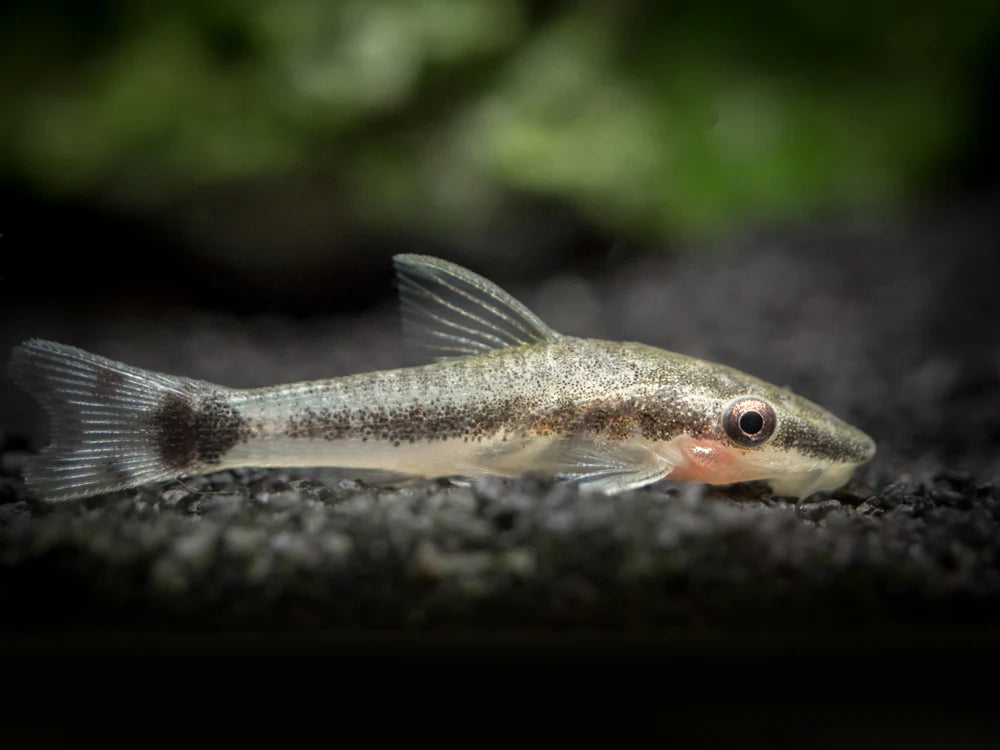Top Fin Aquatics
Otocinclus Catfish (Otocinclus macrospilus)
Otocinclus Catfish (Otocinclus macrospilus)
Couldn't load pickup availability
Tank-raised specimens of this classic nano fish are difficult to find, but we have them! Compared to wild-caught specimens, tank-raised specimens are typically much more durable in the aquarium.
Whether or not you have an algae problem in your tank, Otocinclus Catfish (Otocinclus macrospilus) make a great addition to any aquarium community. Also known as Otto Cats, otos, or dwarf suckermouth catfish, these fish use their sucker-mouths to attack algae on the aquarium glass, plants, and decorations. In fact, they are widely considered one of the best algae-eating fish in the world, and groups of them form quite the cleanup crew with their voracious appetite for algae. They come from fast-flowing rivers in South America, so they do best in aquariums with strong currents (which can be achieved with good water filters or powerheads), good filtration, and plenty of aeration.
Otocinclus Catfish are recognizable by the rows of armor-like plating along their bodies. They often have a variety of neutral colors on their bodies (such as browns, grays, and black) that form attractive patterns. This fish should be kept in groups of 6 or more. These are small catfish, growing up to a maximum of 2 inches in length. They have very social personalities and are quite peaceful, making them completely safe to keep with other non-aggressive fish, shrimp, snails, and live plants.
If algae is not present in your aquarium, the Otocinclus' diets can be supplemented with fresh vegetables (such as cucumber or zucchini), algae wafers, or vegetable-based flake food.
- Widely considered the best algae-eating fish in the freshwater aquarium hobby
- Very social personalities
- Safe with plants
- Completely peaceful
- Rare tank-raised specimens
- Temperature: 74° - 79° F (23° - 26° C)
- pH: 6.8 - 7.5
- KH: 2 - 10 dKH
- Minimum tank size: 10 gallons
- Diet: Can mostly sustain themselves on algae. If algae is not present in your aquarium, their diets can be supplemented with fresh vegetables, algae wafers, or vegetable-based flake foods.
- Social behavior: Peaceful, schooling/shoaling.
- Origin: South America
- Average adult size: 1.5 - 2 inches (3.8 - 5 cm)
- Average purchase size: 1 - 1.5 inches (2.5 - 3.8 cm)
*Sample Photo is for reference only. Exact fish will vary in size and colour*
Share






